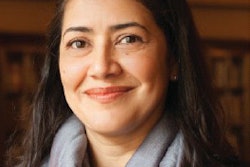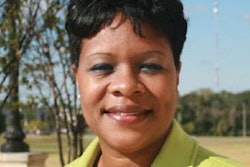As a child, Bridgette M. Brawner saw too much — the strewn drug vials and addicts’ discarded needles that littered her playground, the senseless fi ghting that hit close to home, more kids interested in the streets than in school and adults who had given up on life. For a time, this was Brawner’s world growing up in the Flatbush neighborhood of Brooklyn, N.Y.
Even through the bright eyes of a 10-yearold, life in her community looked bleak. It was then that Brawner told herself, “Th ere has to be more than this.”
The single mother who raised Brawner uprooted her young daughter and fl ed to the suburbs for safety. While Brawner says she was able to escape some of the chaos of the streets, she “never stopped looking back” and caring about the people who were left behind.
“I was young, but I knew even then that I wanted to grow up to do something that could make a difference in the world and in the lives of others,” says Brawner.
Decades later, she’s made good on her pledge. Today, that young girl with the tightly held dream is using nursing and community-based participatory research to understand what’s fueling the HIV epidemic among Blacks in Philadelphia and how certain conditions contribute to its spread.
“It’s just God’s blessing that I got to where I am now,” says Brawner. An early experience with sexual abuse and despair left her “broken” and wondering whether she would ever make it through school or even through life. But Brawner — the fi rst in her family to graduate from college — did make it. She is an assistant professor of Nursing in the Center for Health Equity Research at the University of Pennsylvania and in the Center for Global Women’s Health at the university’s School of Nursing.




















